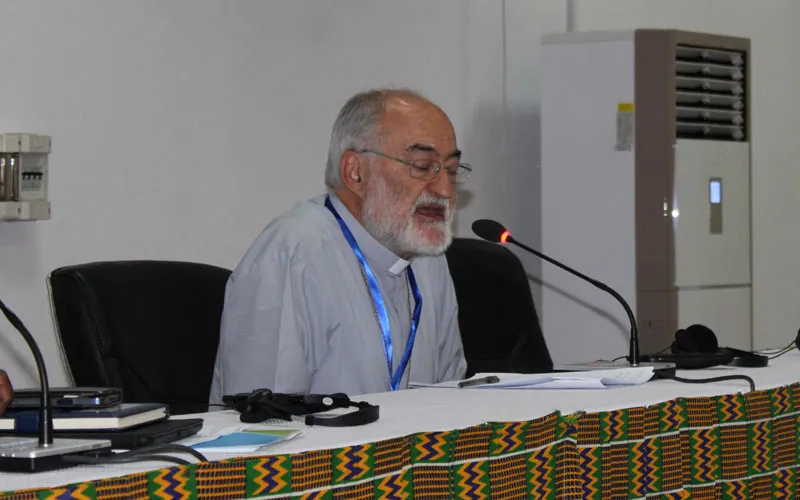Accra, 28 July, 2022 / 8:52 pm (ACI Africa).
The challenge of migration in Africa needs to be addressed from the point of view of human rights, the Cardinal in Morocco has told delegates of the 19th Plenary Assembly of the Symposium of Episcopal Conferences of Africa and Madagascar (SECAM) in Accra, Ghana.
In his presentation on the third day of the July 25 – August 1 Plenary Assembly that has brought together over 120 Catholic Bishops in Africa and Madagascar, Cristobal Cardinal Lòpez Romero emphasized the link between the right to a dignified and productive livelihood, which poverty negates, and migration.
“When we address the issue of migration, we must do so from the perspective of rights - with the corresponding duties - but not from a security, police and repressive perspective,” Cardinal López Romero told the delegates coming from the eight regional associations of the continental symposium who are meeting under the theme, “Ownership of SECAM: Security and Migration in Africa and its Islands”.
The Archbishop of Rabat in Morocco criticized the view that migration is a problem, saying, “Human migration should be seen as a reality or a social phenomenon, not as a problem.”
“The problems are wars and socio-political-religious conflicts (which generate refugees and asylees); poverty and hunger (which cause economic migration); economic inequality between the countries of the North and the South,” he explained, adding, “The migration of people is almost always a consequence of these problems.”








